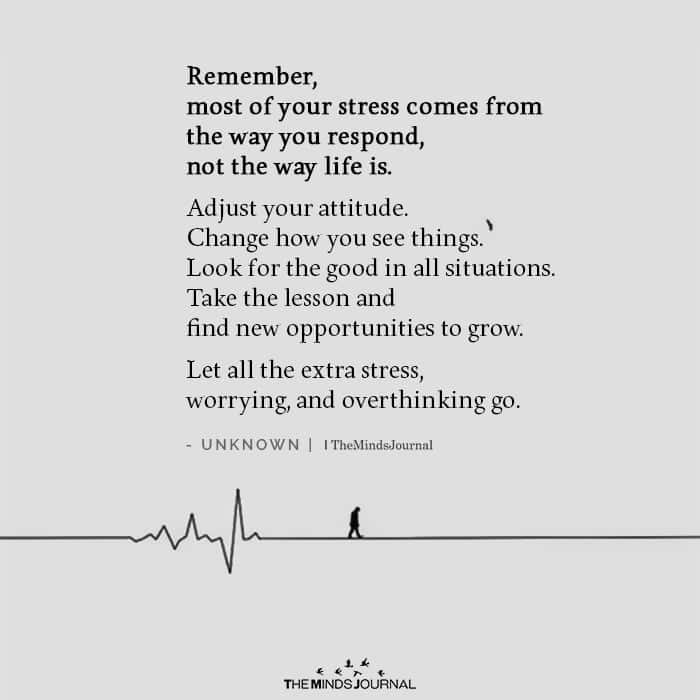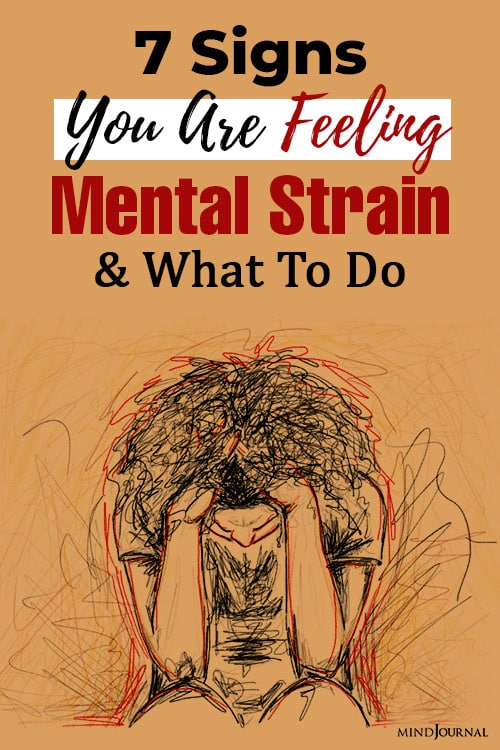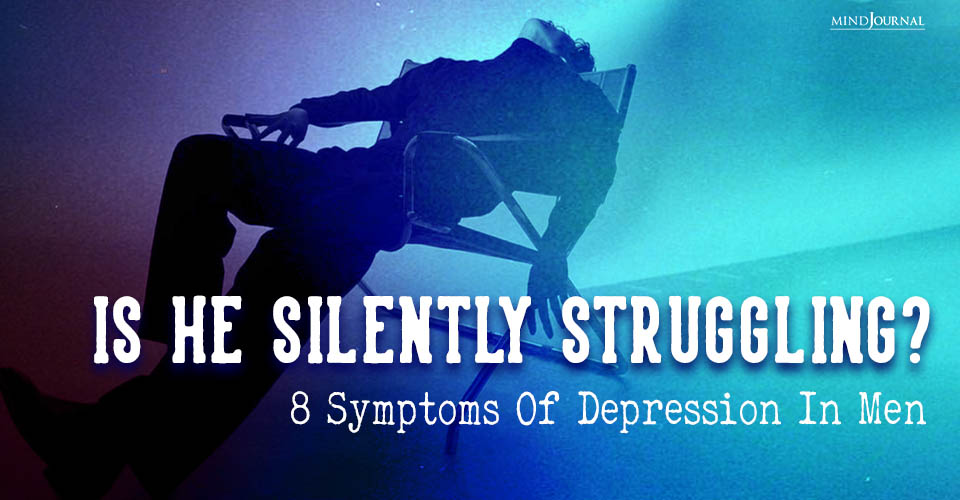It seems like stress has become a bigger part of your life now than ever before, doesn’t it? Stress and emotional distress seem to be ruling your life and you are constantly and miserably feeling mental strain on your mind, body, and soul. But sometimes mental strain doesn’t always manifest in straightforward ways.
You can end up feeling mental strain and emotional stress in a myriad of ways, without even realizing it for what it is. Also known as emotional distress, it can lead to many emotional, mental, and physical symptoms, and if you don’t handle them in the right way and at the right time, it can very easily take a turn for the worse. Don’t wait to reach your breaking point before trying to feel better, and try to nip this in the bud.
What is mental strain?
Mental strain is another term for stress, where you feel emotionally and psychologically overwhelmed, due to all the pressure you experience in your life. Excessive stress and emotional distress can lead to many emotional and physical ailments, which in turn will wreak havoc on you.
Even though everyone feels stressed out from time to time, excessive stress is detrimental for you in the long run.
4 Causes Of Mental Strain
There can be a myriad of causes that contribute to you feeling mental strain day in and day out. Not everyone’s cause of emotional distress is the same, and that brings us to the main contributing factors.
1. Work life.
A stressful and high-pressure work life is one of the biggest reasons for feeling mental strain. Be it job insecurity, demanding work assignments, toxic bosses, long work hours, or dissatisfaction with your job – experiencing even one of these factors is enough to make you feel overwhelmed and stressed out.
Work related stress can manifest in the following ways:
- Depression.
- Anxiety.
- Fatigue.
- Increased heartbeat.
- Stomach issues.
- Muscle pain and tension.
- Difficulty concentrating on things.
- Headaches.
- Isolating yourself.
- Deteriorating work performance.
- Feeling frustrated and impatient all the time.
2. Money-related problems.
Finances again is another major cause for feeling mental strain. Money is crucial for survival, and every person on the face of the earth has experienced stress at least once due to financial problems. They don’t kid around when they say that money can make you go crazy, do they?
Emotional distress caused due to money-related problems can manifest in the following manner:
- Constantly thinking about money, and obsessing about how much of it you have, and how much more you need.
- Being too hard on yourself when you spend money on things that are not really essential.
- Getting into conflicts with your family and friends regarding money and your spending habits.
- Overthinking about money, and seeing everything from a financial perspective.
3. Personal problems.
Problems in your personal life can take a toll on your mental and emotional health, and that is not really surprising, is it? Be it conflicts with your loved ones, or the presence of toxic people in your life, all of this can make you feel unhappy, stressed out, and dejected.
Some of the biggest contributing factors to emotional distress when it comes to your personal life are the following:
- Communication issues between you and your partner.
- Controlling and abusive relationships.
- Contemplating divorce.
- Substance abuse.
- Lack of sexual and physical intimacy.
- Not being able to spend enough quality time together.
- Not understanding the needs and wants of each other.
4. Parenting issues.
If you are a parent, and you are feeling mental strain then you might want to look towards your role of parenting. Every parent out there has at some point felt burnt out and overwhelmed while juggling a ton of responsibilities, be it raising children, job pressure, running errands or managing household duties.
Most people underestimate and undermine the pressure parents are constantly in when it comes to taking care of their children and thinking about their welfare. When parents are stressed out, it ends up affecting their mental health and their relationship with their children too.
Some of the major causes of stress among parents are:
- Single parenting.
- Long work hours.
- Raising children with disabilities.
- Unhappy married life.
- Low income household.
7 Emotional Signs You Are Feeling Mental Strain
1. Anxiety
Anxiety is one of the major and most common symptoms of emotional distress. You know you have anxiety when you constantly feel a sense of dread and fear, and worry about every little thing. It’s not just feeling morose or sad, it’s this perpetual feeling of being scared that something or the other is going to go wrong.
Studies show that people who have a stressful work-life and have a lot of work pressure, tend to experience symptoms of depression and anxiety more than people who don’t really have a stressful work-life.
How you can handle anxiety:
- Go for therapy by reaching out to a qualified psychologist or psychiatrist.
- If needed, try out medication and psychotherapy (only if a qualified mental health professional advices it).
- If you prefer a natural approach, then you can opt for alternative treatments and methods.

2. Depression
Depression can be defined as a mental illness that causes someone to experience a continually and critically low mood. Many studies and research have vouched for the fact that there is a strong link between emotional distress and depression.
People who suffer from acute stress and chronic stress are more likely to experience symptoms of depression than people who are not as stressed as them. Whenever you are feeling mental strain, you might notice that most of the time you feel dejected and defeated, and it feels like you just can’t bear the pressure anymore.
Depression is something that can seriously affect your life, and stop you from living it in a healthy way.
How you can handle depression:
- Seek mental health help from a proper and qualified mental health professional.
- Proper medication, and psychotherapy can go a long way in helping you deal with depression.
- Exercise, meditation, mindful exercises, and support groups can also help a lot.
Related: 3 Effective Tips To Vent Without Increasing Your Stress Levels
3. Anger and irritability
Another common sign that you are feeling mental strain is anger, and also irritability. When you find yourself getting angry at the drop of a hat, and everything little thing seems to get on your nerves, chances are you are emotionally stressed out.
Not everyone feels depressed and anxious when they are stressed out; some people feel that they are always on the brink of having an angry outburst. What makes this symptom even more scary is that anger and irritability issues can end up leading to a massive heart attack, and other cardiovascular ailments.
So if you find yourself getting upset at the tiniest of things, and it feels like everyone is out to get you, then you need to take a break and slow down for the sake of your mental and emotional health.
How you can handle anger and irritability:
- Communication techniques, relaxation techniques, and problem-solving strategies work very well when it comes to tackling anger issues.
- Anger management therapy and techniques can also help tremendously.
- Taking deep breaths whenever you feel like you are on the verge of losing your temper (box breathing, 3-6-9 breathing etc.).
4. Concentration issues and trouble remembering things.
If you find yourself having concentration and memory issues, then it’s a sign that you are experiencing emotional distress. When you notice that you are having trouble remembering things that you never had any difficulty remembering before, take it as a sign that maybe you need to slow down for a minute and take a breather.
Studies have shown that when someone goes through a traumatic and stressful incident, certain hormones in the brain end up impairing their memory, which leads to serious concentration and memory issues.
How you can handle memory and concentration issues:
- Major lifestyle changes can help you tackle memory problems.
- Regular exercise and a healthy, nutritious diet can help you keep your mind focused.
- Harmful habits such as smoking, drinking, and drug use should be prohibited completely.
- Meditation and other mindfulness techniques can help you achieve peace of mind.
5. Lack of sexual desire.
Excessive stress and emotional distress can end up taking a toll on your sex drive, and make you see it as nothing more than a chore. Sexual and physical intimacy takes a hit when your life is controlled by stress and emotional turmoil.
Chronic and acute stress levels lead to higher levels of cortisol and on top of that, you are already distracted by everything going on in your life. Is it really a surprise that your sex life goes down the drain? These types of changes are mostly seen in women, but sometimes men also experience low sex drive, when they are feeling mental strain.
How you can handle the lack of sexual desire:
- Regular exercise, relaxation techniques, and self-care can help you in having positive feelings about sex.
- Work on reducing your stress levels by doing what makes you happy.
- Spend some time in nature every day to tackle emotional distress.
- Healthy conversations and transparent communication with your partner regarding sex can help you feel optimistic about it.
Related: 10 Secret Areas Where You Store Stress In Your Body
6. Frequent mood swings.
Mood swings are another symptom you will notice when you are feeling mental strain. Physical, social, and emotional stressors have a huge impact on your mood, leading to frequent and drastic mood swings.
One moment you will feel like you have everything under control, and the very next moment you will feel as if everything is coming crashing down. It’s nothing short of mentally draining when you don’t have any sort of control over your mind and all the emotions associated with it. Stress can truly make you feel miserable.
How you can handle rampant mood swings:
- Spend time in nature everyday; fresh air can do wonders for your mood.
- Mindfulness and relaxation techniques can help tremendously.
- Spending time with people who you love and trust and can always lean on for mental and emotional support.
- If nothing seems to work, then going for therapy is a good option.

7. Inclination towards addiction and substance abuse.
Many people when they are feeling mental strain tend to turn towards substance abuse, such as excessive drinking, smoking, and doing drugs, in an effort to numb the negative feelings they feel on the inside.
Chronic stress can end up changing the physical nature of your brain by promoting addiction-related behaviors, and also turning it into a habit. The more stress you are under, the more you will try to lose yourself in the world of addiction. It’s like a vicious cycle, which if you don’t break will only push you towards a downward and dark spiral.
How you can handle addiction:
- Reaching out for mental health help, if you feel that you are not being able to handle it by yourself.
- Working towards building a healthy lifestyle by gradually cutting back on addiction-forming behaviors and habits.
- Support groups that specialize in helping addicts.
- Leaning on your loved ones for mental and emotional support and guidance.
Feeling mental strain has become a part and parcel of today’s hustling and bustling life. But you don’t need to sacrifice your mental and emotional health every step of the way. Focus on taking it one day at a time, follow these tips for handling stress in a healthy way, and you will see that things don’t always have to be so draining and miserable.














Leave a Reply
You must be logged in to post a comment.